China Aviation Museum
China Aviation Museum is the first large-scale open aviation museum in China. It is located at the foot of Datangshan, Changping District, Beijing. After many years of closure, natural vegetation is dense. In the 720,000 square meters of the library area, the green coverage area reached 450,000 square meters.
China Aviation Museum is the first batch of national first-class museums, patriotic education bases, the first batch of national defense education demonstration bases and popular science education bases, and the national AAAA-level tourist attractions. It is the top five in the world and the first in Asia. It is a large-scale aeronautical Museum integrating knowledge, education, science and technology, research, garden and tourism.
Historical evolution
The China Aviation Museum was built in October 1986 and opened to the public on November 11, 1989.
On August 20, 2007, the China Aviation Museum was assessed as a national 4A-level tourist attraction by the National Committee for Quality Grading of Tourist Scenic Spots.
In May 2008, the State Administration of Cultural Relics awarded the China Aviation Museum the first-class museum.
On May 25, 2009, China Aviation Industry Group Corporation and the Air Force of China signed an agreement for the co-construction of the China Aviation Museum. After the museum was expanded, more than 800 prototypes of various existing aviation equipment were collected, such as the Yinglong fighter aircraft independently developed by China Aviation Industry. At the same time, the permanent sculpture group landscape constructed by the "sword" main sculpture, hero Avenue and hero Memorial Wall three parts combination, showing the glorious course of China Air Force and Air Force from history to the future .
From 1986 to 2010, the development process can be roughly divided into four stages: the first stage is the preparatory stage, the use of caverns to establish the "Air Force Weapons and Equipment Exhibition Hall", go to all parts of China to collect and rescue more than 100 Chinese and foreign famous aircraft, more than 4,000 aeronautical relics. In the second stage, the outdoor exhibition area was redeveloped and planned for the basic construction stage. The exhibition of the achievements of military training simulation equipment and the demonstration of air force scientific and technological training were carried out successively. The third stage is the preliminary stage of development. It will change from cultural relics display to comprehensive exhibition, improve supporting infrastructure, and organize activities such as "Aeronautical Centennial Retrospective Exhibition" and "Commemoration of the 60th Anniversary of the Victory of the War of Resistance Against Japan". The fourth stage is the rapid development stage. In order to meet the new requirements of the museum function in the new period, the collection resources are deeply excavated, the functions of science and education are studied and expanded, and the exhibition forms of high-tech exhibitions are developed. It has gradually developed into the first batch of national first-class museums, national patriotism, national defense education and popular science education bases .
On April 24, 2017, the wreckage of Long March No. 2 F rocket was collected in the museum. At the same time, the opening ceremony of "Sky Mailbox in Museum" was jointly held by the Space Museum and the Space Post Office of Space City.
Tourism information
Traffic guide
City Traffic: Take the Changping Metro Line, get off at Shahe Station, transfer to No. 945 bus, or transfer to No. 643 bus at the end of Metro Line 5.
Self-driving traffic: from Exit 22 of Beijing-Tibet Expressway (original Badaling Expressway), that is, Xiaotangshan Exit to the right and to the north of the road 9 km east.
Opening Hours
Every day from 08:30 a.m. to 05:30 p.m. (closed on Monday, except for statutory holidays)
Ticket Price
Free admission, comprehensive exhibition hall: 20.00 yuan, cavern exhibition hall: 20.00 yuan
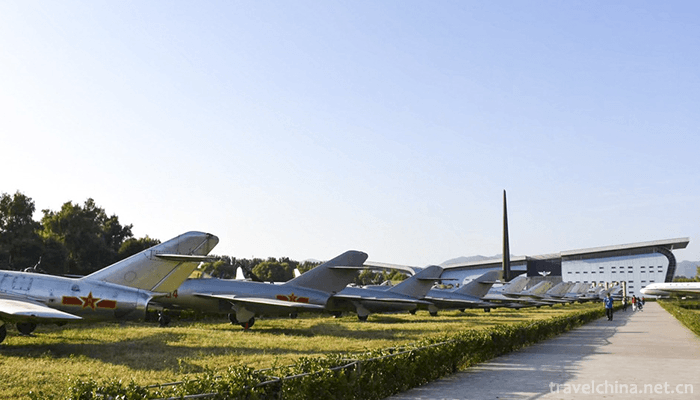
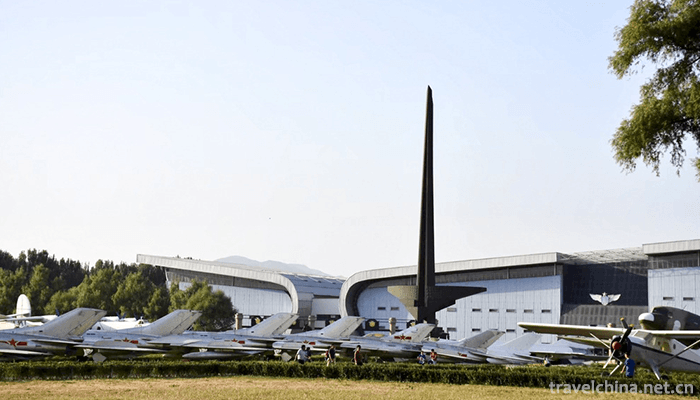
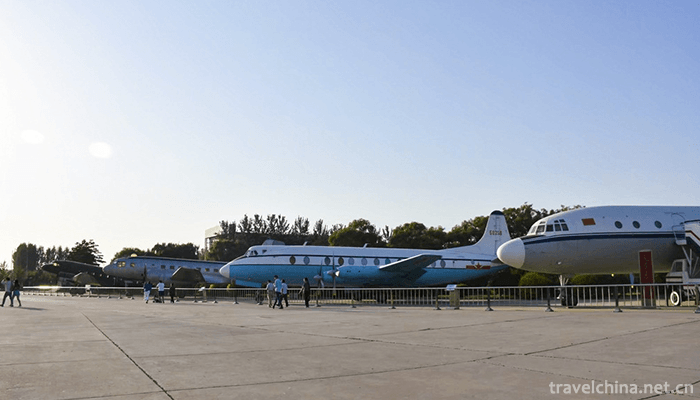
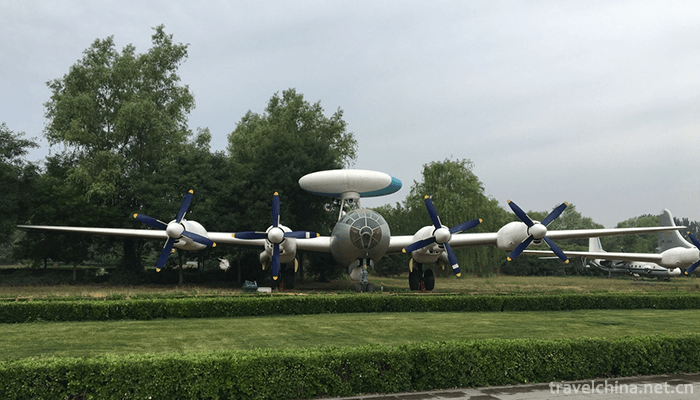
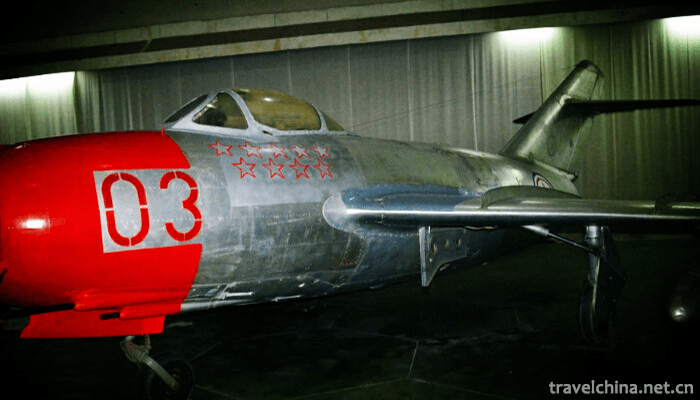

-
1.Yunlong Lake
Located in the southwest of Xuzhou City, Jiangsu Province, Yunlong Lake is the main scenic spot of Yunlong Lake Scenic Area in Xuzhou, formerly known as "Stone Dog Lake"
Time 2018-12-06 -
2.Holiday Beach
Holiday beach is located on the west coastal avenue of Haikou City, which is 6 kilometers long. On the left side is the verdant forest belt of ephedra, with resorts, hotels, playgrounds and so on
Time 2018-12-23 -
3.East China Bailey Winery
East China Wine Manor is located in Jiulongpo, Nanlongkou, Laoshan, Qingdao. It is the first European Wine Manor in China built strictly according to the European Wine Manor Model
Time 2018-12-26 -
4.Bigan Temple
Bigan Temple, located in Weihui, Henan Province, is one of the most important temple-tomb complex. It is the first temple in China with tomb-worshippers, known as "the first temple in the world&a
Time 2019-01-02 -
5.Li Zhuang ancient town
Lizhuang, an ancient town precipitated by cultural and historical relics, is an ancient town that tells stories and vicissitudes of the Anti-Japanese War. It is an ancient town that reflects Chinese t
Time 2019-01-29 -
6.Malenqi Peak Forest Tourist Area
Located at the junction of Tongling, Nanling and Fanchang counties on the South Bank of the Yangtze River, Maren Qifeng scenic spot is located in the middle of the southern Anhui tourism belt
Time 2019-02-06 -
7.Miao Silver Jewelry Forging Techniques
Miao silver jewelry forging technology takes silver as raw material. The pattern and structure of silver jewelry have been carefully designed by the craftsmen. There are 30 processes from drawing to c
Time 2019-06-05 -
8.Xinyiquan
Xinyiquan, one of the traditional Chinese boxing, is an important part of Chinese martial arts culture and Oriental mysterious culture. It is a wonderful flower in the hundred gardens of Chinese marti
Time 2019-07-06 -
9.Xunyang Folk Song
Xunyang Folk Song is one of the local folk songs in Xunyang County, Ankang City, Shaanxi Province. It has a long history, rich melodies, various types and different styles. Like other folk art forms,
Time 2019-07-09 -
10.Folk Beating and Playing in Zhijiang
Zhijiang folk wind and beating music is a kind of traditional folk music art which is widely active in Zhijiang area of Hubei Province. After years of development and evolution, the folk blowing and p
Time 2019-07-25 -
11.Southwest Medical University
Southwest Medical University is an ordinary university in Sichuan Province. It is located in Luzhou, a famous historical and cultural city and a civilized city in the region of Sichuan, Yunnan, Guizho
Time 2019-08-31 -
12.Population of Deyang
By the end of 2018, the total number of households in Deyang was 1 million 575 thousand, and the total registered residence population was 3 million 870 thousand. Among them, there were 1 million 242 thousand urban residents and 2 million 629 thousand rural population
Time 2020-12-14